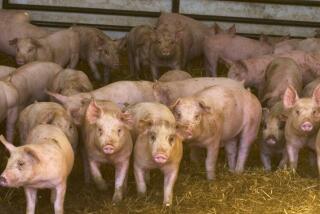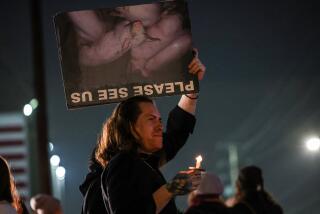Judge Hobbles Cattlemen in Winfrey Beef Libel Suit
- Share via
AMARILLO, Texas — Without explanation, a federal judge ruled Tuesday that Texas cattlemen do not have a case against Oprah Winfrey based on a state “veggie libel” law that protects perishable food products from false and defamatory statements.
U.S. District Judge Mary Lou Robinson did not, however, throw the case out as defendants had requested. Jurors will return today to hear the lawsuit as a common-law business defamation case, which places a much heavier burden of proof on the cattlemen.
The case had been the first test of the state’s 1995 “veggie libel” law. Twelve other states have similar laws, but none has been tested in court.
The judge did not declare the law unconstitutional, but merely ruled that the cattlemen do not have a case under it. Attorneys would not discuss the ruling, citing a gag order.
The judge ruled after a day of arguments outside the presence of the jury over defense motions to end the trial. Her decision was not accompanied by a written order.
It appears that the cattlemen now must persuade the jury that talk-show host Winfrey, her production company and a vegetarian activist guest on her April 16, 1996, show intended to hurt the beef industry.
The episode was about whether the British epidemic of “mad cow” disease, or bovine spongiform encephalopathy, was a concern for U.S. beef consumers. Twenty-three people died in the British outbreak. Lawyers for Winfrey maintain that statements made on the program did not unfairly disparage U.S. beef.
Texas cattlemen said the show falsely portrayed U.S. cattle as being at risk of mad cow disease, which has never been detected in the United States. They argued that statements made on the show caused cattle prices to plunge.
Defense attorneys had asked the judge to dismiss the case entirely, saying the cattlemen had no case because they were not personally mentioned during the show.
“Under the plaintiffs’ theory, any person in the United States who owned a cow has a cause of action,” defense attorney Charles Babcock argued. “It creates too much danger, too much risk to people speaking about generic topics.”
The defense starts its case today.
More to Read
Sign up for Essential California
The most important California stories and recommendations in your inbox every morning.
You may occasionally receive promotional content from the Los Angeles Times.













